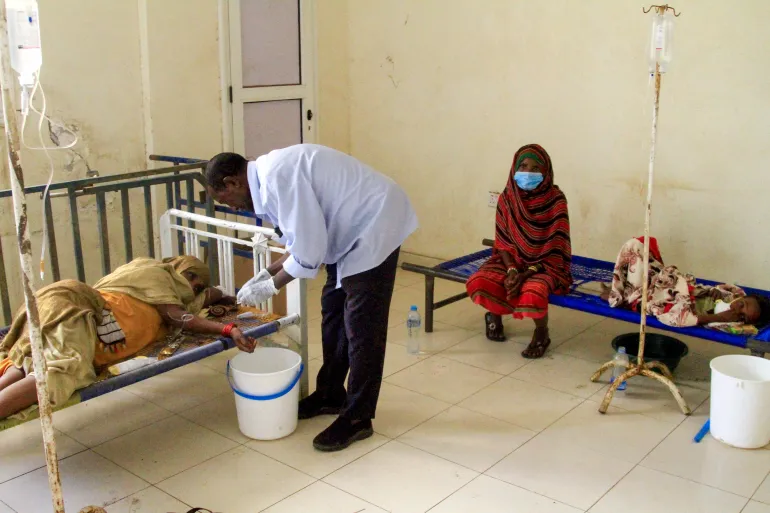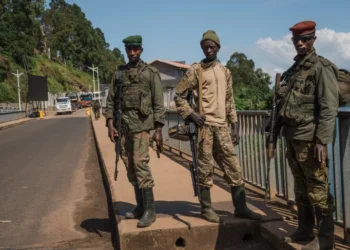Sudan is currently grappling with a devastating cholera outbreak that has claimed the lives of nearly two dozen people and left hundreds more severely ill, according to recent statements from health authorities.
Health Minister Haitham Mohamed Ibrahim confirmed that the outbreak has resulted in “at least 22 deaths and 354 confirmed cholera cases across the country.”
However, the precise timeline of these fatalities and the overall count since the beginning of the year remains unclear.
The World Health Organization (WHO) reported that as of July 28, 78 people had died from cholera in Sudan this year, with over 2,400 others infected between January 1 and late July.
Cholera, a highly contagious and rapidly progressing disease, causes severe diarrhea, leading to dehydration and, if untreated, death within hours.
The WHO warns that the infection is primarily spread through the consumption of contaminated food or water, making it a significant public health threat in regions with compromised sanitation.
This outbreak is yet another blow to Sudan, a country already plunged into turmoil following an eruption of violence in April last year.
Tensions between the military and the powerful paramilitary Rapid Support Forces (RSF) escalated into full-scale warfare, transforming cities like the capital, Khartoum, into battlegrounds.
The ongoing conflict has decimated civilian infrastructure, including the already fragile healthcare system, forcing many hospitals to close their doors.
The human toll has been staggering, with thousands killed and millions displaced. According to the International Organization for Migration, more than 10.7 million people have been forced to flee their homes since the fighting began, making Sudan the site of the world’s largest displacement crisis.
Over 2 million of those displaced have sought refuge in neighboring countries, while those remaining face the daily threat of violence and starvation.
The conflict has also been marked by widespread atrocities, including mass rape and ethnically motivated killings. International rights groups and the United Nations have condemned these actions as war crimes and crimes against humanity.
Compounding the country’s suffering, devastating seasonal floods have swept through 12 of Sudan’s 18 provinces in recent weeks.
Local authorities report that the floods have killed dozens of people and destroyed critical infrastructure, displacing approximately 118,000 more people. The flooding has exacerbated the already dire humanitarian situation, leaving many without shelter or access to basic services.

Vaccination Campaign to Combat Worsening Cholera Outbreak
Cholera outbreaks are not uncommon in Sudan, with a particularly severe outbreak in 2017 that claimed at least 700 lives and infected around 22,000 people in less than two months.
This time, the current outbreak is believed to have originated in the eastern province of Kassala before spreading to nine localities across five provinces. Tarik Jašarević, a WHO spokesperson, noted that “most of the detected cases had not been vaccinated.” He added that the WHO is collaborating with Sudanese health authorities and other partners to launch a vaccination campaign in response to the crisis.
Amid these multiple crises, Sudan’s military-controlled sovereign council announced plans to send a government delegation to Cairo for talks with U.S. officials.
This move follows mounting pressure from the United States for the military to engage in ongoing peace negotiations in Switzerland aimed at resolving the conflict.
The council stated that the Cairo talks would focus on implementing a previous agreement requiring the RSF to withdraw from civilian homes in Khartoum and other regions.
The peace talks, which began on August 14 in Switzerland, have drawn diplomats from several countries, including the U.S., Saudi Arabia, Egypt, and the United Arab Emirates, as well as representatives from the African Union and the United Nations.
Although an RSF delegation is in Geneva, they have yet to participate in the discussions.
READ ALSO: Ablakwa shared insights on the West Blue Judgment Debt























